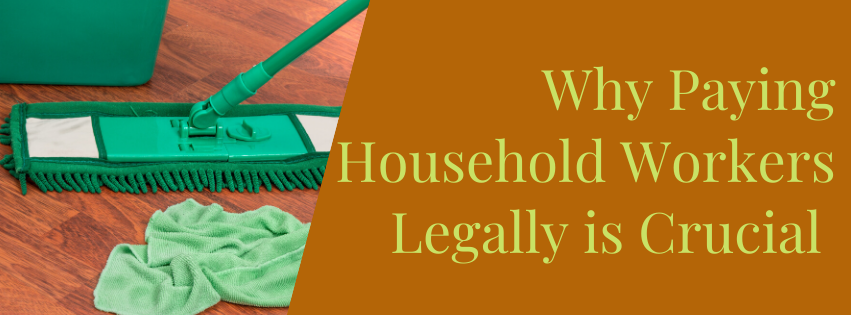Many of us have held or offered positions where cash is given “under the table” as payment. This is especially common for household workers such as nannies and babysitters. While paying your staff in this manner has always been illegal, the Coronavirus pandemic has reinforced the necessity of paying those in the household care industry in a structured and legal way.
Unemployment and CARES Act Benefits
With unemployment at its highest percentage since the Great Depression, many Americans have had to file for benefits from their states and the CARES Act.
Unfortunately for many nannies and household workers, being paid under the table excludes them for being able to file for unemployment since they do not have a tax record to submit as part of the process. As a result, since stay-at-home orders have gone into place in most states, many of these essential household staff members were left without jobs and were unable to receive assistance from the government.
Medical and Family Leave Benefits
Likewise, being paid under the table disables household workers from taking advantage of the medical and family leave benefits enacted in the Families First Coronavirus Response Act (FFCRA.) These benefits, which include paid time off to recover from illness or take care of family members who are ill or children who have been let out of school, are only available to workers who are paid “on the books” and can provide their financial records. Since economies are slowly reopening and many families are considering resuming their normal childcare, which could lead to exposure for household workers, having this option open to nannies is essential.
What You Can Do
In order to protect your employees (and yourself from potential fines that you may incur if your household workers apply for benefits without the proper documentation,) you should set up a legal pay structure for them as soon as possible. Luckily, since the IRS has extended deadlines for Q1 taxes due to the pandemic, you should be able to get caught up without being penalized for noncompliance or necessitating the payment of backtaxes. The filing deadline for 2020’s Q1 and Q2 wages is July 15th, so you’ll want to make sure that you obtain a federal employer identification number, file a new hire report, set up an unemployment insurance account with your state, and catch up on nanny taxes before the deadline. If you are hiring in-house childcare for the first time, you’ll of course want to ensure that you are compliant from the get-go.
The pandemic has shed new light on the importance of “above the table” pay, both for the benefits of your employees and for your own legal protection. There are a few steps that you will need to take to get caught up on any under the table nanny wages and doing so may seem expensive. However, since the IRS has provided deadline extensions for tax documents due to the virus, this is a great time to correct your mistakes and get set up for legal pay going forward, thereby protecting yourself and those who work for your family.
